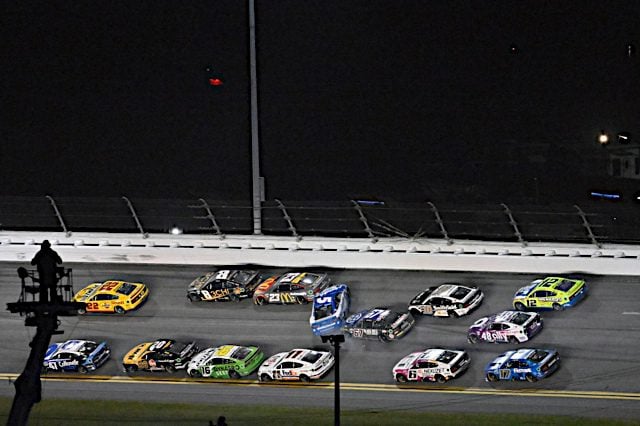Speedweeks in Daytona Beach, Florida has come and gone, and the teams are en route to California. What remains in their wake is the fallout from finishes in the top-two series that left a bit to be desired.
Nothing new for what has become the norm at Daytona International Speedway and Talladega Superspeedway, but has the time come to start treating wrecks as a bit more than just a product of bumping at 200 mph? This week in 2-Headed Monster, Luke Wingard and Vito Pugliese tackle the topic.
Time to Reign in the Recklessness
The season-opening races at Daytona for each of the top three NASCAR series are the most anticipated of the year. Besides being superspeedway races, bringing three-wide drafting action, there’s the constant threat of a field decimating “Big One” lurking for the entire distance of the respective races.
Following this weekend’s events, the best race and finish was readily apparent by the time the checkered flag flew at the Daytona 500.
I mean who didn’t love seeing Greg Van Alst break through for his first victory in the ARCA Menards Series’ biggest race of the year?
“Heresy” they screamed!
What kind of revisionist history has ARCA — with their legendary “ARCA brakes” or insurance agent drivers not being able to exit their car with a helmet on after an innocuous accident — providing a superior ending to “The Great American Race,” or even the Xfinity Series race for that matter?
The simple truth is, this was the story on the ground for the final lap of the top two series.
The NASCAR Craftsman Truck Series can be forgiven for its meandering 60 mph pace, slowed by constant rain and mist, but the Xfinity and Cup series races were both decided by inches — although not at the start-finish line.
In fact, the end of each race was at no defined point on the racetrack. Instead, because of over-aggressive driving by some competitors, the race was decided by an arbitrary flip of the caution light switch, followed by a determination of what loop the cars were at when the lights actually illuminated.
What other sport determines its most important event in this manner?
Imagine an NBA finals drawing to a finish in a tied game seven, the shot and game clocks both counting down, 10…9…8….ERRRGGHHH!!! There’s the buzzer, game over, thanks for spending $250 on a ticket, $600 on a flight, and god knows what on a hotel room or Airbnb. Granted, the Super Bowl was…
Click Here to Read the Full Original Article at …

